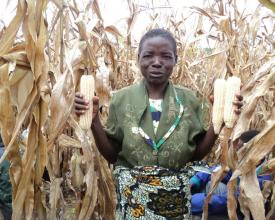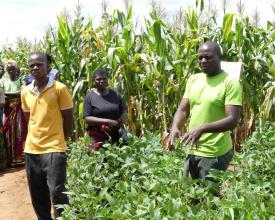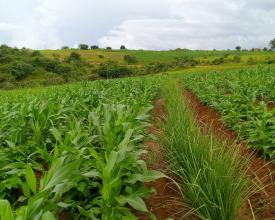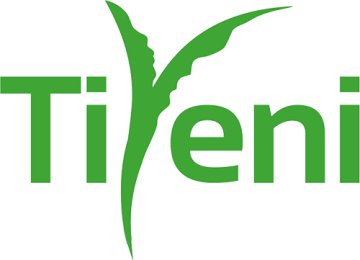
Strengthening Smallholder Resilience in Malawi
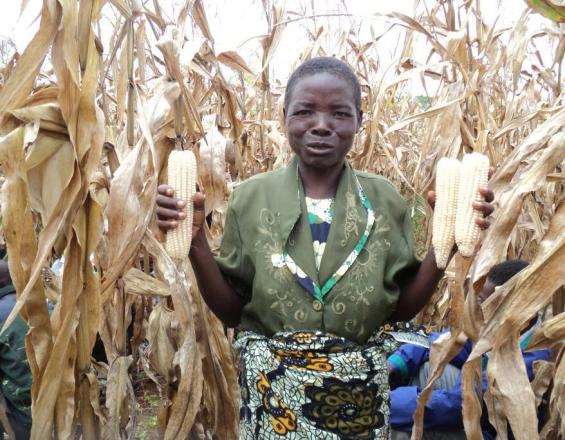
Tiyeni helps Malawian farmers achieve food security by increasing land productivity, addressing the adverse impacts of climate change and increasing sustainability.
Tiyeni provides specialized training in the Deep Bed farming method: a package of sustainable farming practices that conserves soil and water, increases soil fertility, and assists farmers to double their crop yields in the first year of adoption. Some of the key practices are breaking the soil hardpan, making planting beds along precise contour marker ridges, creating box-ridged furrows, raised footpaths to avoid compaction of beds, manure application, organic ground cover through mulch and cover crops, agroforestry, plant associations that include legumes and no burning of crop residues to enhance fertility.
Tiyeni provides training to farmer groups, government ministry of agriculture (MoAIWD) and NGO field extension workers, research and academic institutions involved in farming activities.
Impacts
This intervention incorporates a range of non-destructive environmentally, economically and socially sustainable land management practices:
a) Social - achieves outcomes in strengthening producer organisations and civil society networking: • builds the links and co-operation between smallholders locally • is embedded in the communities it serves • empowers Lead farmers to manage farmer groups • builds food sovereignty
with a seedbank education • transfers control to all major project stakeholders to disseminate and implement the deep-bed system.
b) Economic - builds the capacity of smallholder farmers to get maximum income from crop yield and eradication of • teaches marketing skills • links farmer groups to markets • takes farmers out of the 5 years recurrent hunger cycle • improves farmers’ livelihood through increasing crop surplus income • minimises food losses or wastage with crop storage training - nearly 30% of crop yield is commonly lost through storage pests & rotting
c) Environmental – gains in water retention, soil texture & fertility, plant biodiversity and quantity and crop productivity • sustainable smallholder farming at water catchment level • healthier green canopy on the surface of the ground • integrates agroforestry in smallholder farming to increase carbon sequestration and reduce deforestation.
